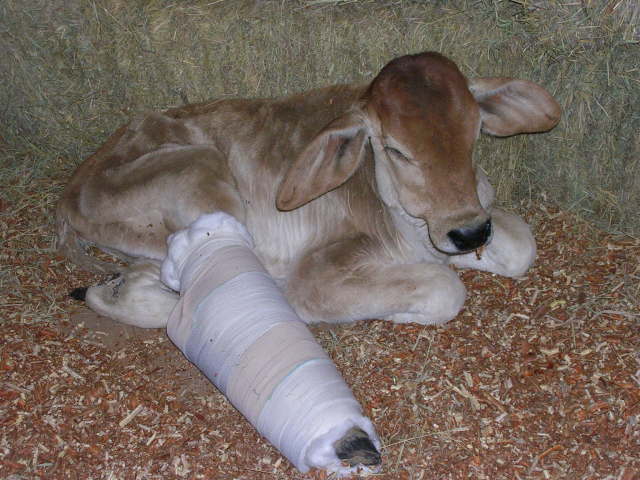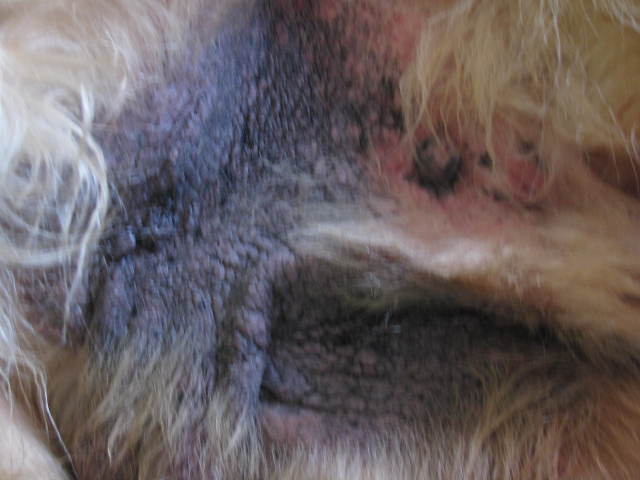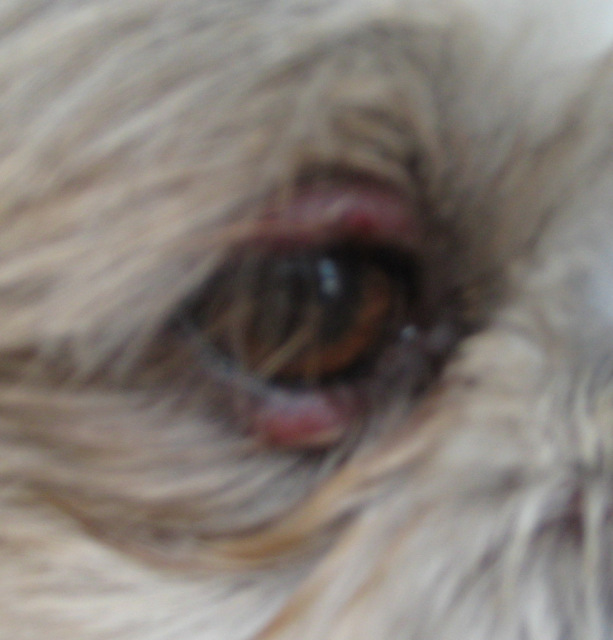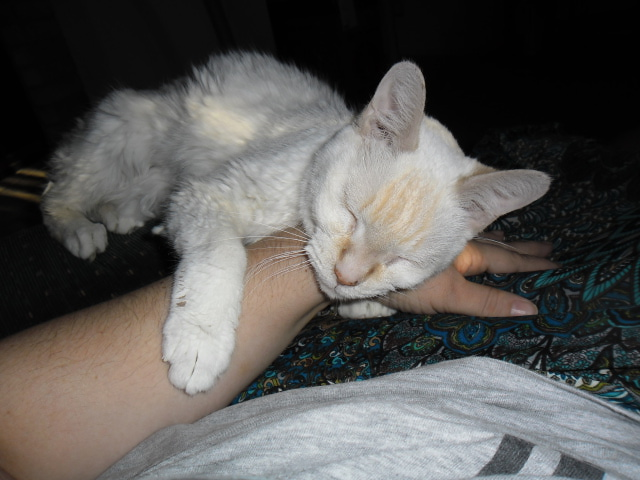QuestionHello,
My name is Amber Johnson and it has been my goal to be a veterinarian all of
my life. However, I wanted to become a veterinary assistant first. This gives me a
job that I love and a job that I can work with animals sooner. However,
I still wanted to go to school while doing this. There is a school called the Great
Lakes Institute of Technology ( www.GLIT.edu ), that will train me how to become a vet
assistant.This program consists of the following components:
Veterinary Medical Terminology
Handling & Care of Animals
Clinical Microbiology
Veterinary Anatomy and Physiology
Emergency Animal Care
Animal Behavior
Wound Management
Computer Applications in Veterinary Medicine
Professional and Medical Ethics
Instrumentation and Aseptic Principles
and Techniques
Diagnostic Imaging
Anesthesia & Surgical Intervention
Pharmacology
Treatment Techniques 1 & 2
Clinical Pathology
Clinical Laboratory Applications
Professional Development
4 Week Externship in a Veterinary Hospital, Clinic or Humane Society.
Would this help me to become a vet? Should I take it? Would I still have to go to community
college for 2-4 years and then all of the other training? Would I skip something?
Please email me back with the information as soon as possible. Thank you SO
MUCH for your time.
AnswerHello Amber,
Your best bet is to take courses at the community college or apply to a 4-year program for pre-vet (pre-med or science), and then get a job at an animal shelter or vet hospital to get on-the-job training. The vet assistant program will not count toward your Bachelor's degree. After 4-yr college you must then go to vet school for an additional 4 years.
www.avma.org is the american veterinary association's website that I would encourage you to check out. Below is more information on becoming a vet from that site... GOOD LUCK!
The first step toward a veterinary career is deciding that veterinary medicine is the right path for you. Some come to that decision at a young age, the first time they take a family pet to a veterinarian or a veterinarian visits their family farm. Some decide to become a veterinarian after reading about the achievements of prominent veterinarians. For others, the decision comes later in life, sometimes as a second career.
Although it's never too late to make the choice, it's never too early to begin to prepare for this challenging career. To help you make a career decision, you should know what a veterinarian does and what personal attributes a good veterinarian needs.
-------------------------------------------------------
What Personal Abilities Does a Veterinarian Need?
Individuals who are interested in veterinary medicine should have an inquiring mind and keen powers of observation. Aptitude and interest in the biological sciences are important.
Veterinarians need a life long interest in scientific learning as well as a like and understanding of animals. Veterinarians should be able to meet, talk, and work well with a variety of people.
Veterinarians may have to euthanatize (humanely kill) an animal that is very sick or severely injured and cannot get well. When an animal dies, the veterinarian must deal with the owner's grief and loss.
------------------------------------------------------
What are the Pluses and Minuses of a Veterinary Career? Top
The pluses and minuses of a veterinary career vary. They depend on the stage of a veterinarian's career, the type of practice, and the veterinarian's likes and dislikes. The primary reward for all veterinarians is the personal satisfaction in knowing that they are improving the quality of life for animals and people.
Veterinarians who are employed by government agencies, laboratories, colleges, and commercial firms often have responsibility for large health programs and may manage large numbers of people.
Most veterinarians work in private clinical practice, which has its own set of advantages and disadvantages. Veterinarians in private clinical practice gain satisfaction from helping owners keep their animals well and from treating sick and injured animals.
Veterinarians in private practice serve a variety of animals. This is especially true in companion animal practice because of the increased popularity of pet birds, small mammals (e.g., hamsters, gerbils), and fish. Today, a veterinarian may be treating llamas, catfish, or ostriches as well as cats, dogs, horses, cows, hogs, sheep, and goats.
Veterinarians usually treat companion and food animals in hospitals and clinics. Those in large animal practice also work out of well-equipped trucks or cars, and may drive considerable distances to farms and ranches. They may work outdoors in all kinds of weather. The chief risk for veterinarians is injury by animals; however, modern tranquilizers and technology have made it much easier for veterinarians to work on all types of animals.
Most veterinarians work 50 or more hours a week; however, about a fifth work 40 hours a week. Although those in private practice may work nights and weekends, the increased number of emergency clinics has reduced the amount of time private practitioners must be on call. Large animal practitioners tend to work more irregular hours than do those in small animal practice, industry, or government. Veterinarians who are just starting a practice tend to work longer hours.
Private clinical practitioners who own their own practices determine the nature of their practice and set their working hours. Because they are self-employed, most private clinical practitioners choose to work beyond normal retirement age.
===========================================================
School Statistics
There are presently 28 schools of veterinary medicine in the United States graduating about 2,100 students a year, with more than 8,500 students enrolled. Approximately 75% of entering students are women.
-----------------------------------------------------------
Preparation Advice
Students interested in a career in veterinary medicine should begin their preparation by doing well in general science and biology in junior high school. They need to take a strong science, math, and biology program in high school. To be considered for admission to a college of veterinary medicine, a student must first complete undergraduate preveterinary medical coursework, which usually includes three to four years of college study, with specific course requirements. Each college of veterinary medicine establishes its own preveterinary requirements. Typical requirements include basic language and communication skills, social sciences, humanities, mathematics, chemistry, and the biological and physical sciences.
---------------------------------------------------------
Preveterinary Coursework
Preveterinary coursework can be completed at many colleges and universities, including those at which the veterinary medical schools are located. Students should check with the veterinary college to which they plan to apply to be sure they take all required courses. They should also be certain that credits from the preveterinary courses they take at the school of their choice are acceptable to the veterinary colleges.
Completion of a preveterinary program does not guarantee admission to a college of veterinary medicine. Admission to veterinary school is highly competitive. Applicants usually have grades of "B" or better, especially in the sciences. Applicants must take the Veterinary Aptitude Test, Medical College Admission Test, or the Graduate Record Examination. Most colleges give preference to candidates with animal or veterinary related experience. The number of qualified applicants who are admitted to veterinary colleges nationwide varies from year to year, but the average acceptance rate is approximately 43%.
---------------------------------------------------------
Where Most Schools are Located
Most veterinary schools and colleges are located at state universities, and give preference to applicants who are residents of that state. Many states without veterinary colleges contract with one or more colleges for the admission of a prescribed number of their residents each year. Many veterinary schools accept out-of-state residents.
-------------------------------------------------------
About School Accreditation
The 28 accredited veterinary colleges in the United States are the only schools in the United States at which a veterinary medical degree can be earned. Each college is evaluated regularly by the American Veterinary Medical Association and must maintain high standards of excellence to keep its accreditation.
-------------------------------------------------------
The Phases of Professional Study
In most colleges of veterinary medicine, the professional program comprises two phases. During the first phase, preclinical sciences, such as anatomy, physiology, pathology, pharmacology, and microbiology are emphasized. Most of the students' time is spent in classroom and laboratory study.
The second phase of professional study is principally clinical. Students learn the principles of medicine and surgery in the classroom and through hands-on clinical experience. Students learn to apply their knowledge in a clinical setting under the supervision of graduate veterinarians on the faculty. In the clinics, students treat animals, perform surgery, and deal with owners who use the school's clinical services.
---------------------------------------------------------
The Clinical Curriculum
The clinical curriculum includes study of infectious and noninfectious diseases, diagnostic and clinical pathology, obstetrics, radiology, clinical medicine, anesthesiology, and surgery. Students also study public health, preventive medicine, toxicology, clinical nutrition, professional ethics, and business practices.
---------------------------------------------------------
The Academic Experience
Veterinary medical study is difficult. Students learn about many different animals and diseases, and become skilled in surgical techniques and many laboratory and diagnostic procedures.
A typical veterinary medical student spends about 4,000 hours in classroom, laboratory, and clinical study. Because the time required for instruction absorbs most of a student's day, many evening and weekend hours are spent doing reading assignments, library research, and independent study.
-----------------------------------------------------------
After Graduation from Veterinary School....
A License From the State is Needed
Before graduate veterinarians can engage in private clinical practice in any state, they must acquire a license issued by that state. A license is granted only to veterinarians who pass state-required examinations.
-----------------------------------------------------------
Employment Options
New graduate veterinarians may enter private clinical practice, usually as employees in an established practice or private industry, or become employees of the U.S. government as meat and poultry inspectors, disease control workers, or commissioned officers in the U.S. Public Health Service or the military. New graduates many also enter internships and residencies at veterinary colleges and large private and public veterinary practices.
-------------------------------------------------------
Advantages of Internships
Veterinarians do not have to complete an internship before beginning practice. However, many internship and residency programs do exist, and an increasing number of new veterinarians are taking advantage of them to sharpen their skills or to achieve advanced qualification or specialty certification.
----------------------------------------------------------
Research and Teaching Requirements
For positions in research and teaching, a master's or Ph.D. degree is usually required. Veterinarians who seek specialty board certification in one of the 20 specialty fields, such as ophthalmology, pathology, surgery, radiology, or laboratory animal medicine, must complete 2- to 5-year residency programs and must pass an examination.
-----------------------------------------------------------
Continuing Education
Continuing education is important, even after veterinarians have completed their college studies and acquired the appropriate licenses. New scientific knowledge and techniques are constantly being developed, and veterinarians must keep up to date by reading scientific journals and attending professional meetings and seminars. Approximately half the states require veterinarians to attend continuing education courses to maintain their licenses.

 Calf with broken leg
Question
Finally home and taken
Dear Jana
Im hoping th
Calf with broken leg
Question
Finally home and taken
Dear Jana
Im hoping th
 male golden retriever rash on underbelly
Question
Rowdys belly
My granparents are big dog lovers
male golden retriever rash on underbelly
Question
Rowdys belly
My granparents are big dog lovers
 Shih-Tzu eyelide problem
Question
swollen eyelids
Hi,
Its been about 2 weeks no
Shih-Tzu eyelide problem
Question
swollen eyelids
Hi,
Its been about 2 weeks no
 My 8 month old Great Pyrenees Pup
QuestionBefore and After
Places on Legs
Q
My 8 month old Great Pyrenees Pup
QuestionBefore and After
Places on Legs
Q
 pancreatitis/lymphoma
Question
Romeo
Hello. I have a 9 year old Siames
pancreatitis/lymphoma
Question
Romeo
Hello. I have a 9 year old Siames